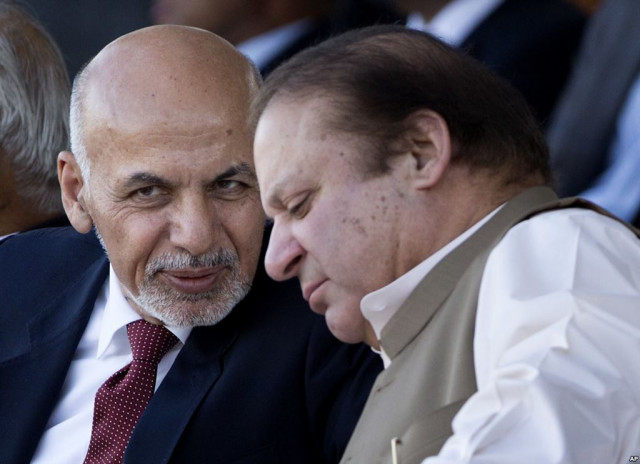Pakistan, Russia, China seek to crack Afghan conundrum
Moscow to host watershed trilateral meeting that will also discuss how to deny Da’ish foothold in the region

Moscow to host watershed trilateral meeting that will also discuss how to deny Da’ish foothold in the region. PHOTO: FILE/AFP
When Afghanistan was in turmoil in the 1980s, Moscow and Islamabad were in opposite camps. But their Cold War rivalry has taken a dramatic turn. And the two countries are now exploring options to become partners for bringing peace in Afghanistan.
For this purpose, Russia will host first-ever trilateral talks involving Pakistan and China next month in an effort to crack the Afghan conundrum.
India expresses disappointment over Pakistan-Russia military cooperation
“This is a watershed moment,” said a senior Pakistani official, who believes the development is part of the realignment taking place in this part of the world.
Last month, Pakistan and Russia held their first-ever joint military drills in a landmark development showing gradual improvement in their ties marred by Cold War rivalry in the past. Moscow ignored Indian demand not to hold joint military exercise with Islamabad after attack on its military base in Uri in the disputed Himalayan region of Kashmir.

Indian Prime Minister Narendra Modi’s efforts also suffered a setback when President Vladimir Putin refused to toe his line on Pakistan during the recent BRICS summit in Goa.
The official with knowledge of the upcoming Pakistan-Russia-China trilateral meeting told The Express Tribune that it clearly showed that Modi’s efforts to isolate Pakistan had failed.
The official requested not to be quoted on the record because he was not authorised to speak to the media. He said the three-way talks will discuss how to bring an end to the long running conflict in Afghanistan and prevent groups such as Islamic State, aka Da’ish, from gaining a foothold in the war-torn country.
When contacted, Foreign Office spokesperson Nafees Zakaria said the initiative was aimed at bringing peace and stability in Afghanistan and the region at large.
Distance escalates Pak-Afghan tensions
“The deteriorating security situation in Afghanistan has raised concerns about the spillover effect due to the presence of non-state actors and other elements there,” Zakaria pointed out.
The ‘other elements’ is in fact a reference to certain regional and international powers which Pakistan, Russia and China fear might eventually use the Afghan situation to achieve their larger objectives in the region.
That is why the broader context of the gathering in Moscow in the first week of December is the transformation in relationship taking place among the major international players.
In September, at the sidelines of UN General Assembly session in New York, Afghanistan, the United States and India held a first-ever trilateral meeting. The development raised eyebrows in Pakistan, which publicly questioned the motive of such an interaction.
“The meeting in Moscow should not be seen in isolation of these recent developments,” said another official, who added that Islamabad, Moscow and Beijing now have ‘convergence’ on many regional issues, including Afghanistan.
The latest initiative is also significant in the backdrop of possible policy changes the US president-elect Donald Trump may bring to the region, including Afghanistan.
New guidelines for Afghan repatriation on the cards
All previous initiatives to seek a political solution to the Afghan conflict have made little or no progress in the past. Pakistan, which is seen as key to the future of Afghanistan, brokered the first-ever direct talks between the Afghan government and the Taliban in July 2015. But the process was scuttled after the confirmation of the death of Taliban Supreme leader Mullah Omar.
Six months later, another initiative was announced involving Pakistan Afghanistan, the US and China established to make renewed efforts for direct talks between the Ghani administration and the Afghan Taliban. The group, which was formed in December last year, was all but dead after the killing of Afghan Taliban chief Mullah Akhtar Mansoor in a US drone strike in Balochistan near the Afghan border in July this year.
Published in The Express Tribune, November 21st, 2016.



















COMMENTS
Comments are moderated and generally will be posted if they are on-topic and not abusive.
For more information, please see our Comments FAQ